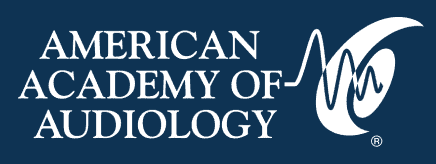As audiology continues to grow and expand, more audiologists are becoming specialty providers, focusing their scope of practice and increasing their skill set to better manage a specific patient population (e.g., pediatric) or area of practice (e.g., vestibular). This is a widespread phenomenon in health care, with most health-care professions becoming more specialized. To create parity with other health-care professionals, ABA is expanding its portfolio of credentials to assist those seeking a higher level of expertise and professional differentiation.
While there are Board Certified physicians in various medical specialties, such as otolaryngology, dermatology and oncology, there is also Board Certification for more general practice providers such as family or internal medicine. Along with state licensure and clinical practice, Board Certification requires qualifying for and passing a rigorous examination. Board Certification demonstrates not just competency but a dedication to practicing at the top of scope. The website HealtheCareers.com lists seven specific factors that make Board Certification valuable to both patients and providers. These include:
- Validation of knowledge – shows both employers and patients you’re well-educated and highly qualified.
- Enhanced credibility – you’re receiving a stamp of approval from a credible certifying body.
- Increased marketability – shows employers you’re serious about your career.
- Additional academic endeavors – continuing education in the specialty is required to demonstrate ongoing knowledge in the field.
- Increased earning power – certified providers can typically earn more than non-certified peers.
- Improved reputation – quickly builds a good rapport in the community where other providers will feel comfortable referring patients
- Deeper respect from patients and peers – fosters recognition and respect from colleagues, giving you a more meaningful voice in the healthcare community.
Audiology has moved from the master’s degree to the AuD creating a well-trained cohort of professionals able to provide a full array of hearing, balance, and tinnitus services. Moving forward the ABA is dedicated to creating credentialing programs that elevate the professional practice of audiology and advance patient care.
Here are the current ABA offerings:
- ABA Certified (ABAC)
- An entry level credential, requiring additional continuing education and credential verification
- Validates commitment to professional standards and continued learning in Audiology
- Certificate Holder – Audiology Preceptor (CH-AP)
- Certificate Program
- Trains audiologists in supervision and mentorship of AuD students
- Certificate Holder – Tinnitus Management (CH-TM)
- Certificate Program
- Trains audiologists in tinnitus evaluation and management services
- Certificate Holder – Educational Audiology (CH- EdAuD) NEW
- Certificate Program
- Trains audiologists in evaluation and management services in the educational system
- Board Certified in Vestibular Audiology (BC-VA) NEW
- Vestibular Audiology Specialty Certification (VASC)
- Specialty certification with examination
- Board Certified in Pediatric Audiology (BC-PA)
- Pediatric Audiology Specialty Certification (PASC)
- Specialty certification with examination
- Board Certified in Cochlear Implants (BC-CI) New applications on hold
- Cochlear Implant Specialty Certification (CISC)
- Specialty certification with examination (on hold)
The ABA continues to provide a portfolio of educational opportunities for audiologists to enhance their expertise and create professional differentiation within the health care community. As you continue on your audiology journey, consider how an ABA credential can identify you as the clinical expert you’ve trained to become.
Recent Posts
The Perfect Blend of Professional and Personal
AAA 2026 is coming to San Antonio—right in the middle of Fiesta, one of the city’s most vibrant celebrations. This year, it’s easier than ever…
CMS Sets Medically Unlikely Edit for Key Audiology Codes
The Centers for Medicare and Medicaid Services (CMS) has established a Medically Unlikely Edit (MUE) of two units per date of service for Current Procedural Terminology (CPT®) codes 92629, 92632,…
Allergies in U.S. Adults
Individuals who live in colder areas of the country may be eagerly awaiting the arrival of spring and its associated warmer weather. Others may be…



